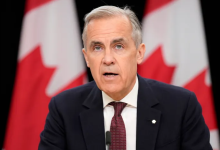Hamas Demands Ironclad Assurances for Gaza Ceasefire as Israeli Strikes Persist Amid Tense Talks

GAZA CITY — On the second anniversary of the devastating Hamas-led assault that ignited the war, indirect ceasefire negotiations between Hamas and Israel concluded their second day in Egypt’s Sharm el-Sheikh resort, with both sides digging in amid ongoing Israeli airstrikes in Gaza.
The talks, mediated by Qatar, Egypt, and Turkiye, center on implementing a 20-point peace proposal from United States President Donald Trump aimed at halting Israel’s military campaign in the Palestinian enclave. Senior Qatari and US envoys, including Steve Witkoff and Jared Kushner, were en route to Egypt to bolster the discussions, slated to resume Wednesday. Hamas negotiators focused on timelines for releasing Israeli captives and mapping Israeli troop withdrawals, while Palestinian factions, including Hamas, issued a joint declaration vowing a “resistance stance by all means” and rejecting any disarmament of Palestinian forces—a core element of Trump’s outline.
Hamas, which holds 48 Israeli captives (with 20 believed alive), conditioned releases on phased Israeli pullouts, insisting the final hostage handover align with a complete military exit from Gaza. Senior official Fawzi Barhoum emphasized demands for an immediate end to the war, full Israeli withdrawal, and the launch of reconstruction efforts overseen by a Palestinian national authority. The group has pledged to abstain from postwar Gaza governance. Top negotiator Khalil al-Hayya, speaking to Egyptian state-linked Al Qahera News, voiced deep skepticism toward Israel, stating Hamas sought “real guarantees” against ceasefire breaches, citing two prior violations. An anonymous Hamas source told Al Jazeera the delegation distrusted the “occupation” even momentarily.
From the White House, Trump hailed a “real chance” for a deal, echoing his Friday call for Israel to suspend bombings. Yet Israeli Prime Minister Benjamin Netanyahu, marking the anniversary, framed the conflict as a “war for our very existence,” committing to secure all hostages, dismantle Hamas’s control, and neutralize Gaza threats—without referencing the parleys.
Mediators remained adaptable, with Qatar’s Majed al-Ansari noting evolving proposals during sessions. Qatari Prime Minister Sheikh Mohammed bin Abdulrahman bin Jassim Al Thani’s attendance underscored resolve to forge an end to hostilities. Trump’s framework envisions Palestinian technocrats managing daily operations under a “Board of Peace” led by him and former UK Prime Minister Tony Blair, sidelining Hamas entirely, though uncertainties linger over funding and long-term oversight.
Despite diplomatic momentum, Israel’s operations raged unabated. Drones and jets struck Gaza City’s Sabra and Tal al-Hawa neighborhoods and the Shati camp access route, killing at least 10 Palestinians Tuesday, per the official Palestinian news agency Wafa. Since Friday, 104 lives have been lost to such assaults. The Gaza Health Ministry reports over 66,600 total deaths since the war’s onset, including 1,701 medical workers. US-based conflict tracker ACLED documented more than 11,110 air and drone strikes alongside 6,250 shelling incidents, with Gaza fatalities comprising 14 percent of global conflict deaths over two years.
In central Gaza’s az-Zuwayda, Al Jazeera’s Hind Khoudary described a grim scene: a boy shot in the head in the east, six slain in southern Khan Younis strikes, and families bracing as “bombs continue to fall” on homes they hoped to reclaim. “Everyone’s waiting for a peace deal,” she said, “as the Israeli forces continue destroying entire residential neighborhoods.




